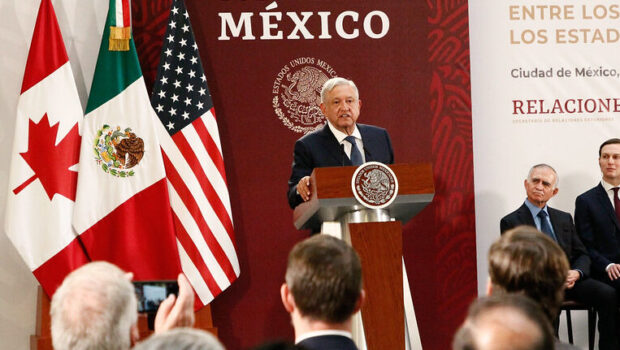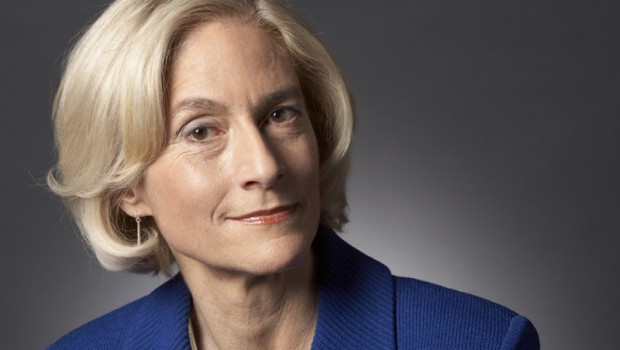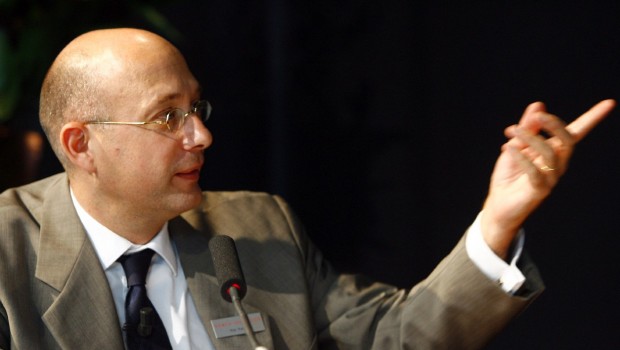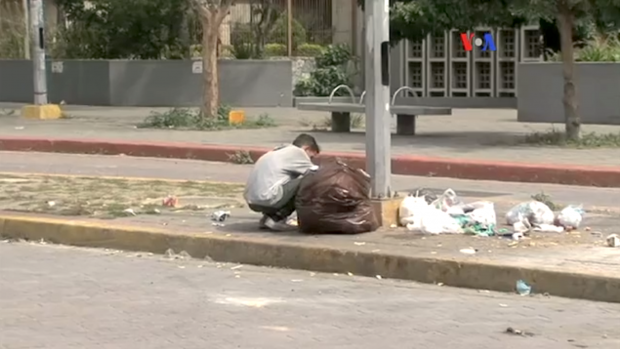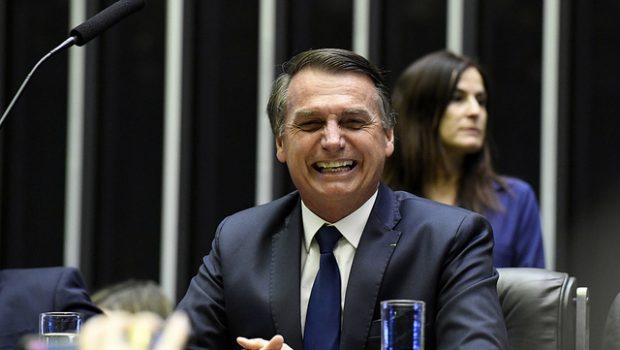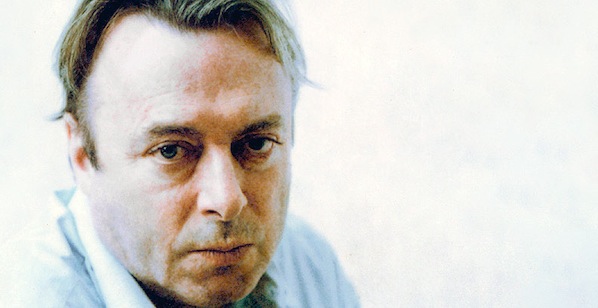Twilight of the Elites
El ocaso de las élites
Christopher Hayes
In the midst of all the recent scandals affecting the global banking system, journalist Christopher Hayes (Editor-in-Chief of The Nation) talks about his most recent book, Twilight of the Elites: America after meritocracy. Therein, he examines why Wall Street and other banking institutions were caught up in the ineptitude and corruption of their management. The following is a text edited from a conversation with Amy Goodman broadcast on Democracy Now!
* * *
Meritocracy
Twilight of the Elites means that what we have seen in this last decade is this almost uninterrupted cascade of institutional failure and, specifically, elite failure. And I think what the system is telling us, what these failures are telling us, is that the current social model and the current mechanisms of elite formation, the extreme levels of inequality we have, are producing an elite that cannot but help but fail, that one of the most insidious aspects of the current distribution of resources in this country and the current inequality we have isn’t just that it’s bad for people on the bottom of the social pyramid but that it makes people at the top worse. It conditions them to be incompetent and corrupt. And so, I think that’s one of the main arguments of the book, is that what we’re seeing in elite failure is produced by the system that produces those elites.
“Meritocracy” is a really fascinating word. It’s coined by a British left-wing social critic named Michael Young in the 1950s. And he writes a book called The Rise of the Meritocracy. This book is kind of in the vein of 1984 or Brave New World. It’s a dystopic work of social criticism about the future, in which he writes about a Britain in the future that manages to use intelligence testing and productivity testing inside firms to select out for the people who were the smartest and the hardest-working and have them run everything. Michael Young says in the book, tongue in cheek, “You know, we realize democracy can be no more than an aspiration, that we can’t have rule by the people, but rule by the cleverest people.” Later in his life, Young was horrified to find that this word, “meritocracy,” which he had intended as satire, had been adopted as an actual social model. In 2001, he writes in an op-ed in The Guardian, while Tony Blair is campaigning for New Labour on a vision of meritocracy, he’s saying, “No, no, no, no, no! I didn’t mean this as a model; I meant it as a critique and what an awful vision it would be of a society that didn’t take our egalitarian commitment seriously, that didn’t take democracy seriously, and instead decided to outsource the important decisions to people that were selected out for their brains or their other features.”
It’s such a perfect example, again, of this concept of social distance, right? I mean, the people like Robert Gnaizda and the folks at the Center for Responsible Lending down in North Carolina that were working among communities that were on the wrong end of the subprime crisis, right, that were seeing their homes foreclosed on, that were seeing equity stripped out, that were seeing these serial refinancings with fees and fees and fees–the folks working there started ringing the alarm bells in 2002, 2003, publishing reports saying, “We’re going have ten million foreclosures. This is going to be a totally disastrous thing.” And they were meeting with the Federal Reserve, and they were waving charts in their faces, right? They were giving them data. And the Federal Reserve didn’t act.
So the question is, why didn’t the Federal Reserve act? And there’s a whole bunch of complicated reasons. But I think, partly, at the core of it, is that they, the folks in the Federal Reserve–Frederic Mishkin; Ben Bernanke, who was a Fed governor, who was saying, “Don’t worry about subprime,” more or less; Alan Greenspan, the Fed chair–were just completely removed from the world in which subprime finance was metastasizing and wreaking havoc. And that removal allowed them to sort of go along doing what they were doing, doing the things that they thought were ideologically justified or justified by the data. When they were not embedded in that world. And the thought experiment I have in the book is, if Ben Bernanke or Alan Greenspan were in a neighborhood where this was happening, if they were walking down their street every morning and seeing the foreclosures signs, if they had a neighbor who had been through one of these serial refinancings and had all the equity stripped out and now faced foreclosure, I can’t help but think the Fed would have cracked down much earlier and with much more vigor.
Financial Elites
Interestingly enough, the hearings over Barclays before Parliament were much more rigorous and much more aggressive. And obviously the systems of campaign financing are quite different, which is not to say British politics doesn’t have its own problem with capture by banking interests. Part of the problem is that this kind of elite solidarity, this self-protection impulse, it stretches across the public and private sector, and it stretches across, in some ways, ideological lines. People are going to move on from being senators to go work at big corporate law firms in Washington, D.C., or lobbying firms that are going to represent those same interests.
The Libor Scandal (London InterBank Offered Rate)
The Libor scandal is a perfect example. We’re just hearing about this now, about this systematic rigging of rates that was happening. And we think now it wasn’t just Barclays–there’s an implication that we know about Barclays because they cooperated with the investigation– that the other banks were doing it, too. Something as routine as that, it’s hard to think, well, it was just cordoned off with the way that they were dealing with the Libor. No. I mean, I think it’s a natural thing to think that this was much more widespread. And the widespreadness of it and the fact that there hasn’t been criminal accountability makes efforts to pass regulatory reform–and, in fact, they have passed regulatory reform–much weaker, because accountability really matters. And accountability is something that doesn’t just come from regulation; it does come from the force of criminal law, as well. It comes from seeing your livelihood and life at stake in making decisions or in nurturing a culture in which decisions are made that are counter to the law. And I don’t think that–I think the absence of that accountability defeats much of the intent of regulatory reform. You have to have those two things together. CEOs, particularly, top bankers, people at trading desks, who are overseeing billions and billions of dollars, have to genuinely be worried that if they do something wrong, they will be held to account by the law. And right now, I think, if you look at the way the emails work, if look at the casualness with which the traders at Barclays are, in writing, rigging a rate and saying, “Thanks, bro. Good looking out. Let’s get a bottle of champagne,” these are not people that are afraid of accountability. I mean, you do not put that in an email if you’re afraid of accountability. If that’s the culture in finance–and I believe it is the culture in finance–in which there is no fear of reprisal, then you are going to get systematic wrongdoing.
The Media
There’s a lot of distrust in the media itself. And when you have distrust in the mechanisms by which you even get information, it’s hard to stoke outrage, because people discount information that they hear. So, you know, there are a lot of folks who just don’t believe what, you know, might be reported on Democracy Now!, might even be reported in the New York Times, which is an establishment publication, because they’ve been told by the people they do trust–Glenn Beck or Rush Limbaugh–that those are completely untrustworthy sources. Part of the issue we have right now is that–and I’m going to sound a little bit like a nostalgic or a conservative here, but there is no common table that the American people come to. There just isn’t, for better or for worse. And I think there’s great things about that, about the death of the kind of broadcast era, and there’s troublesome things about that. But the fact is, the conversation that we have about public life, even the facts that we have at our disposal, the things that we learn day to day, there is no common table that we receive them from. We all get them from different places, increasingly balkanized. And that means, even when there is outrage, that outrage is specific in its targets and diffuse in different ways and in sometimes intention across these ideological lines.
Climate Change and The Elites
I think climate change is the biggest problem. It’s the biggest challenge we face. And it’s also a place where our inaction is the most dramatic, in some senses. People barely even give it lip service in the conversation in Washington, D.C., anymore. I mean, it’s just essentially evaporated from the conversation.
The problem with climate change that’s distinct in some ways is that it requires a certain level of mediation to take seriously. If you live in Youngstown, Ohio, which has a massively high unemployment rate, you don’t need anyone to tell you that unemployment is a problem in Youngstown, Ohio, because you see the empty stores, you see the people out of work, you know them, you are them, they’re in your family. If you’re in a neighborhood that has incredibly high crime rates, you don’t need anyone to tell you that high crime is a problem. You, yourself, have been victim. People you know have been victim. Climate works in a different way. We are not, as human beings, equipped to just perceive what is essentially an imperceptible gradual rise in global average temperature.
We need people to be putting the dots together, right, to say this is part of it. Now, I think that when you have this distrust–when you have distrust of science, for instance–when you have distrust of elites in general, it’s a harder case to make. What I think is happening now for the first time–and Bill McKibben made this point on my show, and I thought it was kind of an interesting one, which is, look, the weather, the wolf is at the door. The weather is freaking out. We no longer have to worry about mediation or even persuading people. It’s real. He basically has this perspective, which I’ve become more and more persuaded by, which is that the climate disaster, as it unfolds before us, is going to do the convincing that ten or fifteen years of the press or, you know, scientists have failed to do. You need states to get together, and everybody, particularly those in the developed world, the wealthiest nations, the ones that have been responsible for already putting the most carbon in the atmosphere, that have drawn out of the bank account the most, to take the hit, to say, “Yes, we’re going to take these steps, even if you don’t,” because if everyone wants someone else to go first, then no one goes first. And that’s precisely the framework, increasingly, that’s happening. And the people that are best equipped to lead, the nation that’s best equipped to lead on this is, of course, the United States, is, of course, the source of the greatest carbon emissions.
America After Meritocracy
If you look at American history from the progressive perspective in a positive way, say, from the New Deal to now, I think there’s, in some ways, two eras of equality, that had different kinds of equality developed. There was unparalleled–and unrepeated since–economic equality, income equality, wealth inequality, from basically the New Deal to the 1970s. And that’s now gone by the boards. But that same period of time had a tremendous amount inequality along lines of race and gender and sexual orientation, which wasn’t even a political issue, largely, at the time. Since 1972 or 1973 to the present, we’ve seen tremendous strides made in gender equity, although still a long way to go; strides made in racial equity, although still a huge way to go; huge strides made in the equality of people along lines of sexual orientation. But we’ve seen that wealth and income equality evaporate.
So I think that we need a third era of the equality that combines those two, and I think that that’s not an impossible task. I think we can have a society that is dynamic, that is free, that is prosperous, but also that has much greater levels of equality, much lower levels of inequality and extremes between the rich and the poor, between the rich and everybody else, and also values equality along all these other lines of identity.
It can be achieved by pressure from below. And that’s the case in what happened–the New Deal was created by a series of social movements that restrained the plutocrats and the crisis, actually, and the way the plutocrats were discredited by the crisis, which I think we discount now as we think about it. And the same thing happened in the amazing liberatory movements, the 1950s, ‘60s and ’70s, towards equality along the lines of race, gender and sexual orientation. That’s the only way we make progress.
© Democracy Now!
Traducido por David Medina Portillo
En medio de los recientes escándalos que han afectado al sistema bancario global, el periodista Christopher Hayes (editor de The Nation) habla sobre su más reciente libro: Twilight of the Elites: America After Meritocracy. En dicho volumen examina por qué Wall Street y otras instituciones de la banca han sido presas de la corrupción e incapacidad de sus directivos. El siguiente es un texto editado a partir de una conversación realizada por Amy Goodman para Democracy Now!
* * *
Meritocracia
Twilight of the Elites habla de la cascada ininterrumpida de fracasos institucionales que hemos visto en la última década, especialmente del fiasco de las elites. Lo que dicha falla deja ver es que el modelo social y los mecanismos de formación –nuestros niveles de desigualdad extremos– están creando elites incapaces de ayudar en los aspectos más insidiosos de la distribución de recursos de este país. La actual inequidad no es mala sólo para la gente de la parte inferior de la pirámide social sino que es más nefasta en las capas superiores, condicionando su corrupción e ineptitud. Este es uno de los principales argumentos de mi libro: el fracaso que estamos presenciando ha sido creado por el sistema mismo que genera nuestras elites.
La “meritocracia” es un concepto realmente fascinante. Fue acuñado en los años cincuenta por Michael Young, un crítico social británico de izquierda. Young escribió The Rise of Meritocracy en la vena de 1984 de Orwell o Brave New World de Huxley. Se trata de una obra antiutópica, de crítica social situada en un futuro donde la Gran Bretaña administra test de inteligencia y productividad al interior de las empresas para seleccionar a sus empleados más ad hoc. El autor escribe: “Tú sabes, nos dimos cuenta de que la democracia puede no ser más que una aspiración; no podemos tener reglas para toda la gente pero sí para los más inteligentes”. Más tarde, Young se horrorizó al ver que esta palabra, “meritocracia”, había sido adoptada como un modelo social real pese a que su intención había sido irónica. En 2001, mientras Tony Blair hacía campaña por el Nuevo Laborismo a partir de cierta visión de la meritocracia, Young publicó un editorial en The Guardian señalando: “¡No quise ofrecer esto como un modelo! Fue una crítica. La visión horrible de una sociedad que no toma en serio nuestro compromiso igualitario. Una democracia que no se toma en serio y, en cambio, decide “subcontratar” la toma de decisiones importantes con personas seleccionadas fuera de sus funciones o de su competencia”.
Elites financieras
He aquí un ejemplo perfecto del concepto de distancia social. La gente del Center for Responsible Lending de Carolina del Norte se encontraba trabajando entre comunidades que enfrentaban lo más severo de la crisis de las tasas de interés (subprime). Eran testigos del embargo de casas, desaparición de patrimonios así como de una escalada refinanciación de deudas sujetas a comisiones. En ese contexto, publicaron un informe que advertía: “estamos llegando a 10 millones de ejecuciones hipotecarias. Esto va a ser un desastre total”. Se encontraban reunidos entonces con la Reserva Federal y las agitadas gráficas aportaban también sus datos. Sin embargo, la Reserva Federal no actuó. La pregunta obligada es, ¿por qué no lo hicieron? Existe un gran número de razones complicadas. En parte –en el corazón de todo ello– fue porque la gente de la Reserva Federal se movía completamente lejos del mundo en que las subprimes hacían metástasis. Tal distanciamiento les permitió seguir haciendo lo que consideraron ideológicamente justificado o acreditado por sus datos –aun si no lo hicieron, tampoco se integraron a ese mundo. Una idea de Twilight of the Elites es que si Ben Bernanke o Alan Greenspan hubieran estado donde las cosas sucedían (por ejemplo, caminando por las calles cada mañana entre ejemplos de ejecuciones hipotecarias), si hubieran tenido un vecino atravesando una de esas escaladas refinanciaciones hasta ser despojado de su patrimonio, no puedo pensar menos que la Fed habría quebrado antes y con mucho más vigor.
Significativamente, las audiencias sobre Barclays en el Parlamento inglés fueron mucho más rigurosas y agresivas. Obviamente, los sistemas de financiamiento de las campañas son muy diferentes, lo que no quiere decir que la política británica no tenga sus propias dificultades con los intereses de la banca. Parte del problema radica en cierta solidaridad entre las elites, su impulso de autoprotección que enlaza al sector público con el privado extendiéndose a algunos aspectos ideológicos comunes. Al dejar de ser senadores, algunos irán a trabajar a los grandes bufetes corporativos de Washington, D.C., o cabildearán con empresas que representan esos mismos intereses.
El escándalo de Libor (London InterBank Offered Rate)
El escándalo de Libor es otro ejemplo notable. Sólo ahora nos enteramos de la manipulación fraudulenta y sistemática de las tasas de interés. No sólo era Barclays sino que otros bancos lo habían hecho también. Se había vuelto tan rutinario que apenas si se acordonó al estilo del caso Libor. –Naturalmente, la práctica estaba mucho más extendida. Ahora bien, el hecho de que no se haya determinado responsabilidad criminal alguna debilita los esfuerzos en favor de la aprobación de una reforma regulatoria. La responsabilidad legal es realmente importante pero su eficacia no recae únicamente en la regulación, emana también de la fuerza del derecho penal. Proviene de ver nuestro sustento y vida puestos en juego en estas tomas de decisiones o de alentar una cultura en la cual esas decisiones se asumen al margen de la ley. Repito, la ausencia de responsabilidad judicial quebranta las iniciativas de toda reforma regulatoria. Y necesitamos que ambas marchen juntas. Los CEO, altos banqueros o gente de despachos comerciales que supervisan millones y millones de dólares, deberían estar especialmente preocupados de que, si actúan mal, serán llevados ante la ley. Ahora mismo –pienso–, si nos fijamos en el tipo de correos electrónicos, si observamos la informalidad con la que en los mensajes de Barclays se manipulan las tasas de interés mientras comentan: “¡Gracias, bro! ¡Vamos por una botella de champán!”, advertiremos que se trata de gente que no considera seriamente su responsabilidad. Si la cultura de las finanzas –y yo creo que es la cul tura de las finanzas– no se encuentra temerosa de las represalias, padeceremos su sistemática criminalidad.
Medios de comunicación
Existe una gran desconfianza sobre los medios de comunicación. Cuando recelamos de los mecanismos por los cuales obtenemos información resulta difícil crear conciencia ya que las personas descartan la información que reciben. Hay un enorme número de ellas que no cree en lo que se presenta en Democracy Now! o, incluso, en algo cubierto por el New York Times, una publicación bien establecida. Aquellos en quienes confían realmente, Glenn Beck o Rush Limbaugh, los han convencido de que aquellas encarnan fuentes sin credibilidad.
Parte del problema al que nos enfrentamos ahora es que –voy a sonar un poco nostálgico y conservador– no existe ninguna mesa común para los estadounidenses. Creo que en torno de una probable “Muerte de la Era de la Difusión” hay grandes ideas aunque hay otras más bien nefastas. Porque lo cierto es que en la conversación acerca de la vida pública incluso los hechos que tenemos a nuestra disposición y las cosas que aprendemos día a día no nos brindan esa mesa común. Todo lo recibimos desde diferentes lugares y cada vez más fragmentado. Eso significa que, incluso cuando hay indignación, ésta sea específica en sus metas pero ideológicamente difusa en sus intenciones.
Cambio climático y elites
Creo que el cambio climático es el mayor problema que enfrentamos. También es el tema donde nuestra inacción es más dramática aún. Incluso, apenas si se le concede atención en las conversaciones de Washington. Fundamentalmente, ha desaparecido de la agenda. Y el problema requiere de cierta difusión, la que debe asumirse seriamente. Si nos encontramos en un barrio con tasas de criminalidad increíbles no necesitamos que alguien nos diga que la delincuencia es un problema. El clima funciona de manera diferente. Como seres humanos, no contamos con lo necesario para percibir algo que es, esencialmente, un incremento gradual e imperceptible de la temperatura media mundial.
Necesitamos gente que conecte los diversos puntos del problema y nos diga que esto es parte de aquello. Ahora bien, cuando tenemos tal desconfianza –recelo ante la ciencia, para el caso–, un escepticismo generalizado hacia las elites en general, esto se vuelve una tarea difícil. Pero lo que creo que está sucediendo por primera vez es que el lobo se encuentra realmente a la puerta. El clima se ha vuelto un caos. Ya no tenemos que preocuparnos por ninguna difusión o de persuadir a la gente al respecto: el problema es patente. Esta es la perspectiva por la que estoy cada vez más convencido de que el desastre climático, tal y como se despliega ante nosotros, va a volver evidente eso que tanto científicos como 10 o 15 años de prensa no han logrado hacernos ver. Debemos convocar a los Estados –especialmente al mundo desarrollado y rico, responsable de la mayor emisión de carbono en la atmósfera y el que más se ha beneficiado de la banca–; encararlos y decirles: “vamos a tomar estas medidas, incluso sin ustedes”. Porque si todos esperamos que alguien vaya primero, nadie lo hará. La nación mejor equipada para realizar esto es, por supuesto, Estados Unidos, fuente de la mayor contaminación.
Después de la meritocracia
Si observamos la historia norteamericana en su perspectiva progresista, desde el New Deal a nuestros días, creo que hay dos épocas de igualdad –si bien diferentes tipos de igualdad. Del New Deal hasta antes de 1970 hubo una incomparable –e irrepetible desde entonces– igualdad económica, de ingresos y de riqueza. No obstante, ese mismo periodo mostró tan aguda desigualdad en términos de raza, género y orientación sexual, que ni siquiera fue un tema político en ese momento. De 1970 en adelante hemos visto enormes avances en cuestiones de equidad de género, racial y de orientación sexual, aunque aún hay un largo camino por andar. Por su parte, hemos visto cómo la igualdad en términos de riqueza e ingresos se evaporó.
Necesitamos una tercera era de la igualdad que combine las dos anteriores. Podemos tener una sociedad dinámica, próspera y libre, pero también con niveles más bajos de desigualdad entre ricos y pobres y, asimismo, con valores igualitarios en todas nuestras líneas de identidad. Esto sólo puede ser logrado mediante una presión desde abajo. El New Deal fue creado por un conjunto de movimientos sociales que frenaron a la plutocracia y sus representantes, desacreditados por la crisis. Lo mismo ocurrió durante los increíbles movimientos de liberación de las décadas de los 50, 60 y 70, en todas las líneas de raza, género y orientación sexual. Ésta es la única manera de avanzar.
© Democracy Now!




